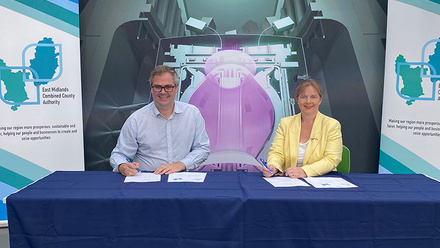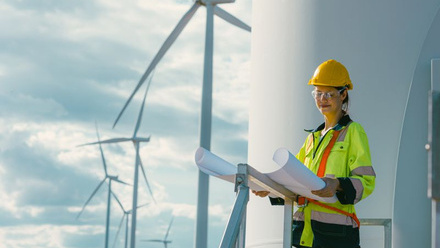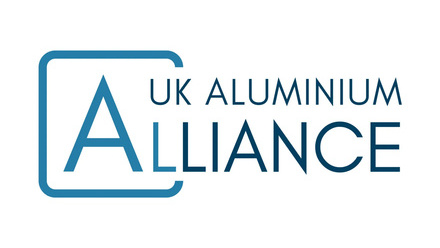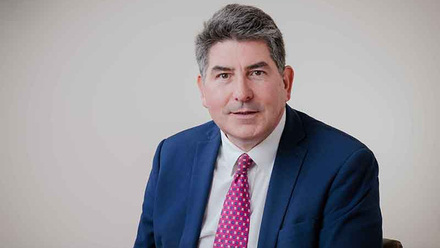Pivoting to policy - IOM3 engages with UK Government
Amid a swathe of government bills and consultations, IOM3 members are honing their skills and experiences.

As a champion for a low-carbon, resilient and resource-efficient society, and with materials, minerals and mining playing a vital role in that transition, informing policy decisions is key, notes IOM3 Head of Policy Rachel Stonehouse MIMMM.
She has been in this newly created post for the last 18 months as the Institute ramps up its policy and influencing work.
'It’s all about helping to make a positive difference by informing policy decisions,' Stonehouse explains. 'My role involves being a bridge between policymakers and our members, by contributing to policy discussions and bringing the expertise and experience of our members to the conversation.
'And in the other direction, helping members to digest and understand policy changes and what that means for them.'
IOM3 policy activity can be seen as proactive and reactive, with the former including direct engagement with government officials and producing policy position papers. Reactive policy work includes responding to government consultations, calls for evidence and parliamentary inquiries. The Institute’s Technical Communities are an integral part of these contributions.
In turn, this raises the profile of the positive contribution these disciplines make to society and seeks to redress misperceptions around mining, raising awareness of the importance of responsible mining for the transition to net-zero.
'We want a joined-up approach to materials, as we don’t just rely on minerals, but also what they are engineered into,' insists Stonehouse.
Pack a punch
Packaging is one of the many areas that has undergone much policy reform over the last four or five years.
Stonehouse works closely with Jude Allan MIMMM, Chair of the IOM3 Packaging Group since 2020. With extensive member input, they shaped the IOM3 response to consultations on the Extended Producer Responsibility (EPR) and Deposit Return schemes.
Allan confesses that when she became Chair of the Group, she was a 'complete policy novice'. Having mostly been a technical person in a creative agency during her industry career, Allan admits she had no need to 'think about the inner workings of how legislation comes into play'.
'There were all these government consultations, words I’d never strung together in a sentence before, and Rachel [Stonehouse] has basically taken me on a journey,' she reflects.
'Obviously, the IOM3 perspective has got to be quite materials agnostic, but [still] understanding the nuances of the different materials. It is an interesting balancing act, and it is complex and nuanced,' says Allan. 'The reason I’m really involved in IOM3, is because it’s about the people working in the industry and thinking about those people, not the businesses they work for.”
Her early stint included giving evidence to a select committee and chairing a webinar with HMRC about the proposed Plastic Packaging Tax. She initially felt 'hugely underprepared', but spent a lot of time with Stonehouse, who walked her through the process and what to expect.
IOM3 partnered with key industry stakeholders to run a series of collaborative webinars to help digest the proposals and take a full value chain approach. The IOM3 Packaging Group then shared their experiences in working on policy with the broader membership.
Allan has since 'graduated' from having 'absolutely no idea what policy was all about', to someone Stonehouse says is a 'real policy pro, and a first point of call'. Indeed, more recently, Allan chaired a panel discussion on EPR legislation at the Resources and Waste Management event and has penned several articles for Materials World.
Now the Interim Managing Director at OPRL, Allan credits landing this role in part to her policy work with IOM3 and, in turn, honing her communications skills in particular.
She encourages others to get involved. IOM3 is a 'safe environment to test it out' for anyone who is interested. 'You don’t have to be an expert to respond. People are more of an expert than they realise. They’ve got valid experience and a valid contribution to make.'
And seeing the influence IOM3 has had has been hugely satisfying, she says, which inspires her to continue.
At the foundations
Another IOM3 policy priority is to help the UK Foundation Industries (FIs) decarbonise and become more circular, while remaining internationally competitive and highlighting their importance to the UK economy.
Dr Laura Cohen MBE CEng FIMMM, previously Chief Executive of the then British Ceramic Confederation (BCC), is well versed with the challenges the FIs face.
She is now a Royal Academy of Engineering Visiting Professor at the University of Manchester, UK, and Henry Royce Institute, and teaches material scientists and engineers about industrial and regulatory challenges and opportunities.
She first dealt with policy while as an international project manager at AstraZeneca around 20 years ago. Not knowing much about packaging, she attended and then chaired the Institute of Packaging Pharmaceutical Forum, which had recently joined the Institute of Materials.
Finding there was a lot of regulation issues, the group pivoted from the technical. Cohen then worked on Braille legislation for medicine, which helped save the pharmaceutical giant about £15mln and taught Cohen about 'building consensus'.
Building on that experience, while at the BCC, now Ceramics UK, she found cross-industry groups valuable in identifying a common agenda – such as the Energy Intensive Users’ group she chaired.
They helped to amplify the ceramics industry’s voice. 'Cross-sector work and taking on that extra leadership is quite important [in influencing policy],' Cohen says, as well as horizon scanning, engagement and listening.
Cohen recommends, 'Understand what the problem is and why it’s really important, get consensus and understand what the consensus is, but also where are there exceptions?'
She emphasises the need to clarify areas of disagreement, as 'a decision may be helpful for the majority in the room, but there could be several organisations that are deeply damaged because of it'.
'It is absolutely essential' to have specific approaches for different stakeholders, Cohen notes, to put yourself in their shoes. When representing any subject, she warns to 'understand...what the possible reaction could be of customers, the public or media to what you are saying, and being very careful'.
She also recommends brevity and clarity in all policy meetings, and to 'have something actionable, understanding what the aims of your audience are as well. With a ministerial briefing, their time is at a premium. Do your background research,' such as on their constituency, history and public statements to find what might resonate.
'It’s about having very simple clear asks and evidence.' She advises a succinct, one-page, briefing beforehand to bring officials on board, and a prompt follow-up afterwards.
For select committees, Cohen stresses considering participation carefully beforehand. 'Why are you doing this? What’s your aim? What’s a likely result? What’s a personal or company or organisational benefit, if any, and how best to engage?'
Evidence can be written or oral, while inviting committees to visit a site 'can be even more powerful', she states. Ultimately, preparation is paramount, but it is important to be adaptable to questions about current events, Cohen advises.
She highlights the benefit of targeting panel members that might be more sympathetic by profiling the MPs in advance.
'When I was working at the BCC, one particular MP might have a brickworks in their constituency, one might have a technical ceramics manufacturing [plant], another might have a different type of manufacturing plant with similar issues…some might be very familiar with our members – some might not be.'
She has found the impact of this work satisfying, and sees engaging with policy and regulation as part of being responsible manufacturers, especially as it affects what, where and how materials are made.
No task too small
There’s also the not insignificant issue of skills to consider. 'Championing the role and the need for materials, minerals and mining skills and professionals across all stages,' is essential, asserts Stonehouse.
'Having a sustainable, people pipeline, making sure we’ve got the people we need to do the jobs we need to do. Underpinning all of that is supporting the transition to a low-carbon, resilient and resource-efficient society.'
This means overcoming silos. Stonehouse explains, 'One of the key things we do in policy is work with others to amplify important messages' – from the National Engineering Policy Centre to the Henry Royce Institute and a host of others.
In 2023, IOM3 consulted stakeholders on the critical materials value chain skills gaps, with the outputs submitted to UK Government. And six organisations, including IOM3, also wrote open letters to UK university leaders and government on the essential role of materials, minerals and mining in modern society, and the need for a high-quality education and training pipeline for a skilled, responsible and sustainable workforce.
Critical input
IOM3 is also represented on several government task forces, either directly by CEO Colin Church FIMMM, or a representative – such as Neil Glover FIMMM, who has sat on government advisory groups on critical minerals. These involve discussions on UK user and sector needs.
Glover, who was previously IOM3 President and is Head of Materials Research at Rolls-Royce, reflects on the differences between representing Rolls-Royce and the Institute in policy work. Glover says, 'We [Rolls-Royce] have a supply chain which is deep, but we don’t directly own that many elements of that supply chain, whereas people in the Institute will work at many different levels of that supply chain. So, it’s a different depth and breadth.'
When called upon to contribute, Glover always asks himself which hat he will be wearing, and what key points he can contribute. With his Institute hat on, he has more of a cross-industry voice.
To effectively communicate, he suggests giving a 'distilled, top-level picture and then having questions or discussion, if necessary, rather than going immediately into loads of detail'.
'I always advise people to be very clear when they participate in any policy piece,' Glover says, regardless of whether it is independent or for government. He makes sure to declare his role from the start, and sometimes clarifying his viewpoint or framing it during discussions if necessary.
'The most important thing for any technical specialist or any chartered engineer is to realise the bounds of your knowledge and competence. And to be clear about that as well and say, "I really can’t comment on that because I really don’t know", or "these are my immediate thoughts, but I’m really not an expert on that". So, it needs checking, and then you might suggest people for them to follow up with,' Glover shares.
This means perhaps balancing his in-depth knowledge of gas turbine materials and their uses, versus his general awareness of supply chain issues for materials in other sectors. 'You can comment in terms of general engineering approach, scientific approach and rigour, even if you can’t comment on the specifics of the data for an individual field.'
And he stresses the importance of being careful with language and being as precise as possible. Glover also advises listening to the discussion and presentations before summarising or commenting from a prepared perspective.
He acknowledges that everyone’s areas of interest cannot be a priority in all discussions, and so accepts if his contribution is deemed too niche to be included after thorough analysis.
Moreover, he is really pleased with the Institute’s input into the UK Government’s Critical Minerals Strategy. This was a huge amount of work, he flags. Therefore, for anyone keen to be involved in policy work, he notes it is important to understand how much work is involved in advance and to have secured organisational support.
But once involved, there is much to be gained professionally and personally, Glover underscores. 'I think it’s really positive the Institute is doing more in this space for our members, and it’s good for people’s personal development as well. Engineering seniors, leaders and specialists should be reaching out into the policy space and contributing. It’s important.'
And now the Institute has made several contributions, its visibility has increased within government. 'For individuals working in academia or companies interested in the policy space, the Institute is [now] a really good route to get that engagement,' Glover recommends.
He praises the Institute’s 'excellent' report on Critical Skills for Critical Materials, which pulled together many industry voices and collated their requirements.
IOM3 members on taskforces will discuss the relevant issues with the in-house policy team in advance. 'A key thing about our contributions is because we’re a charity governed by a Royal Charter, we are advising, not lobbying,' Stonehouse points out.
'Our input is informed, impartial, authoritative and trustworthy. This brings real value to policy discussions – providing input from our members who have expert knowledge and experience.'
She continues, 'We really built the foundations with consultations, calls for evidence, starting to gather that input from our members and Technical Communities. And then, in the last couple of years, we’ve started turning that into more proactive work.'
In turn, the IOM3 policy strategy is 'ever-evolving and there’s more long-term thinking – discussions with our members are always guiding the broader plan'.
The Technical Communities are often the first port of call to find someone with the relevant expertise. 'A real benefit IOM3 brings to policy in general is such a broad membership, we’ve got people across all of the value chain,' says Stonehouse.
She believes all members have worthwhile contributions to make. 'They are the experts. It is what members do in their day job. They’re living and experiencing it. That on-the-ground information is really valuable to policy. And the more members that we hear from, the stronger our input is.'








